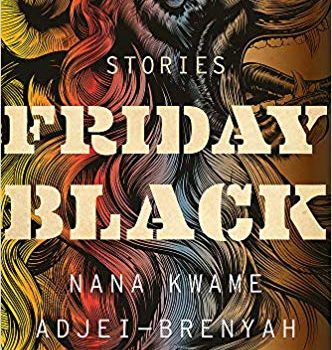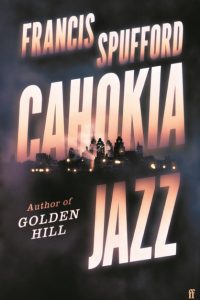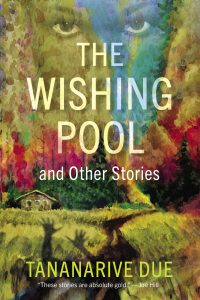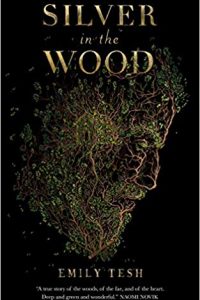Ian Mond Reviews Friday Black by Nana Kwame Adjei-Brenyah
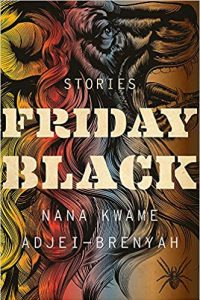 Friday Black, Nana Kwame Adjei-Brenyah (Mariner Books 978-1328911247, $14.99, 208pp, tp) October 2018.
Friday Black, Nana Kwame Adjei-Brenyah (Mariner Books 978-1328911247, $14.99, 208pp, tp) October 2018.
In Lit Hub’s Ultimate Fall Books Preview, which aggregates recommendations made by “various online publications,” Nana Kwame Adjei-Brenyah’s debut collection, Friday Black, was listed alongside such heavyweights as Barbara Kingsolver’s Unsheltered, Kate Atkinson’s Transcription, and Michelle Obama’s Becoming as one of the season’s most anticipated books. The hype reminded me of another debut collection praised to the hilt last year that went on to win multiple awards, shortlisted for numerous others. While Friday Black isn’t as consistently dazzling as Carmen Maria Machado’s Her Body and Other Parties, it’s still an exciting debut that uses genre to reconcile and critique the current moment.
The opening story of the collection, the shocking but brilliant satire “The Finkelstein 5” is an example of this mix of the speculative and the political. George Wilson Dunn, a white man with a penchant for chainsaws, is acquitted of murder after decapitating five black children outside Finkelstein Library in South Carolina:
The court had ruled that because the children were basically loitering and not actually inside the library reading, as one might expect… Dunn… was well within his rights [to retrieve] his Hawtech PRO eighteen-inch 48cc chainsaw.
In response, members of the black community from all walks of life coordinate together to murder random white people while screaming the name of one of the five children. These events are seen through the eyes of Emmanuel, a young black man who actively dials down his “Blackness” so as not to intimidate white people.
While “The Finkelstein 5” is an exaggerated version of our world, Emmanuel’s desire to fit in, to get a job, to earn money, to live a life not dictated by the colour of his skin, grounds the story in something real and tangible. It’s a common trait of many of the pieces in the collection. No matter how speculative the premise, they read less like hollow thought experiments and more like lived worlds inhabited by flawed, confused, and often frightened people. This is true of “The Era”, a story set in a far future dystopia where genetic engineering is rampant and where those with abnormalities are shunned. Ben, our teenage protagonist, is ostracised because his genes were never tinkered with. Like Emmanuel, Ben’s attempts to find acceptance within his blinkered society is met with rejection from classmates, teachers, and even his family. Adjei-Brenyah’s dystopia might be a little sketchy, but we end up accepting it because Ben’s story is so immediate and tragic.
While “The Finkelstein 5” deals with the widening racial divide in America, it’s not the only story to tackle a hot-button political issue. “Zimmer Land” explores America’s obsession with guns and violence by imagining a near-ish future where mostly white men get high on the experience of killing in self-defence within a simulated, theme park environment. Imagine Westworld, but where the robots have been replaced by trained staff (notably people of colour) wearing mech-suits fitted with squibs. What makes this piece so disturbing isn’t so much the company’s decision to open the theme park to kids but the depressing inevitability of a place like Zimmer Land one day existing. With “Light Spitter” Adjei-Brenyah provocatively dissects the issue of school and college shootings. Fuckton (not his name but a cruel sobriquet) murders a girl in the University Library and then commits suicide. Now a ghost, Fuckton finds himself drawn to an angelic figure who turns out to be Diedra, the girl he just killed. As a newly minted angel, Diedra makes it her mission to alter the minds of wannabe mass shooters. This is a deft story that allows the reader to feel sympathy for outsiders like Fuckton, but never asks that we forgive or condone their actions.
The highlight of the collection, a satire that even surpasses “The Finkelstein 5”, is the title story “Friday Black”. On the morning of the Black Friday sales, the staff of a clothing store prepare for the ravenous horde of zombies about to bear down on them, each rotting cadaver hungry for bargains. The mad rush that ensues is both frightening and hilarious. Apart from being the perfect metaphor for consumerism, it makes a disturbing sort of sense that the sheer force of capitalism would briefly overwhelm a zombie’s hankering for brains.
Friday Black ends as it begins, with a powerful and brutal tale. “Through the Flash” deals with a small community endlessly reliving the final hours before the detonation of a nuclear bomb. No-one grows any older or dies, and if they do kill themselves, they rewind back to the beginning of the loop. As the cycle progresses, two of the teenagers discover they have powers, such as super strength and speed. This leads both of them to take control of the community, treating everyone as playthings to torture, abuse, and kill in the knowledge that no one ever stays dead for long. “Through the Flash” is reminiscent of the Twilight Zone episode “It’s a Good Life”, just with a more sadistic edge. It’s ultimately a story about forgiveness, about making amends, about finding hope and love in the most despairing of environments. It’s a fitting end to a striking, imaginative collection that never shies away from being political. I can’t wait to see what Nana Kwame Adjei-Brenyah does next.
This review and more like it in the January 2019 issue of Locus.
 While you are here, please take a moment to support Locus with a one-time or recurring donation. We rely on reader donations to keep the magazine and site going, and would like to keep the site paywall free, but WE NEED YOUR FINANCIAL SUPPORT to continue quality coverage of the science fiction and fantasy field.
While you are here, please take a moment to support Locus with a one-time or recurring donation. We rely on reader donations to keep the magazine and site going, and would like to keep the site paywall free, but WE NEED YOUR FINANCIAL SUPPORT to continue quality coverage of the science fiction and fantasy field.


